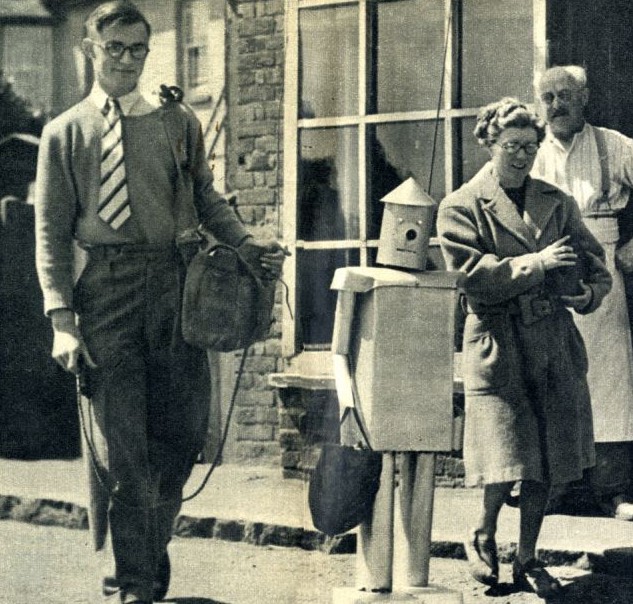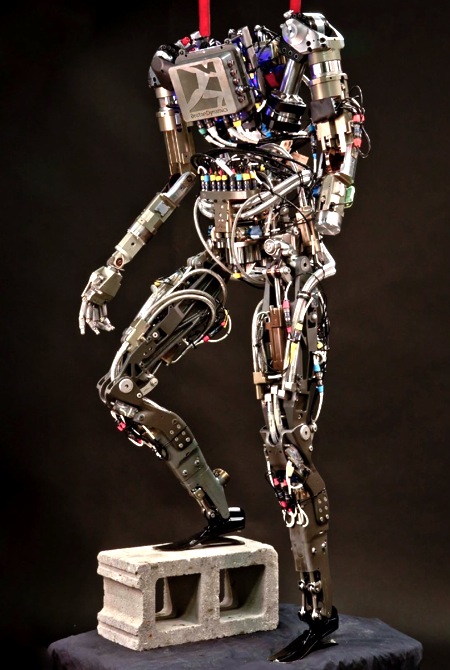 In a Wall Street Journal piece about the (further) rise of the machines, Carnegie Mellon roboticist Illah Nourbakhsh’s looks at the time when the digital and physical worlds will fuse. It’s an interesting article, though his timeline seems way too aggressive to me. The opening:
In a Wall Street Journal piece about the (further) rise of the machines, Carnegie Mellon roboticist Illah Nourbakhsh’s looks at the time when the digital and physical worlds will fuse. It’s an interesting article, though his timeline seems way too aggressive to me. The opening:
“Sunday, April 1, 2035. You are house-hunting, driving to an open house showing to meet the owners, and now your car is speaking Esperanto, thanks to your daughter’s April Fools’ antics. Eventually you convince the car to return to your native tongue, and it queries whether you want your usual morning Starbucks cappuccino delivered to your destination. You arrive, jump out, and a Starbot punctually lands to deliver its coffee payload. Consulting the shared family calendar, the car requests permission to leave and fetch your daughter from soccer.
A Realtor bot trundles out to warmly greet you and connects you via telepresence to the homeowners, who are still in Florida. Together, you and the robot-embodied owners tour the apartment. The bot offers to arrange and project your home furnishings into each room, remapping furniture locations and adding several retro 1990s table lamps made available for single-command purchasing. The lamps seem strangely familiar, and you realize why—you glanced at them in a digital storefront last week. The robo-advert must have tracked your gaze direction and, ever since, you have seen digital versions of the lamps cropping up everywhere. The telepresence patch that the owners are using is probably free, sponsored by product placement. By the end of the tour, you’ve decided against the apartment, but you buy the lamp, asking for in-home delivery. It will be 3D-printed on-demand, installed and turned on, waiting for your return home.
The robots are coming. But they won’t all be shiny, Apple-designed C-3PO look-alikes with middle-aged Siri brains. I believe the robot invasion will be a hodgepodge affair, with legs, propellers and wheels; robots that run the gamut from embodied android forms to robotic technologies hidden in the woodwork of our homes.”

